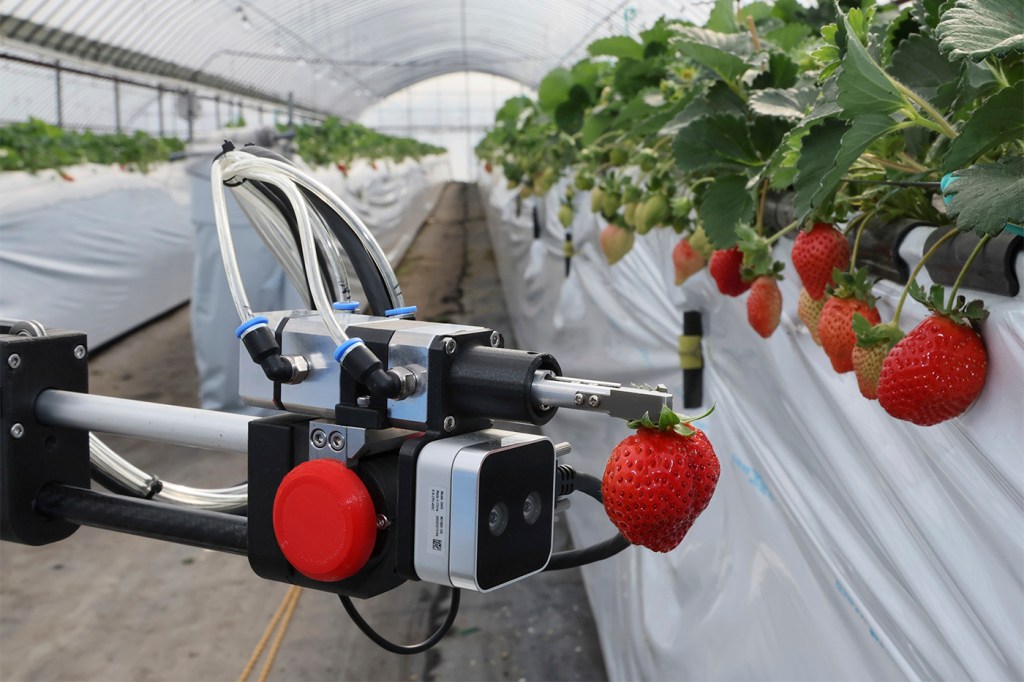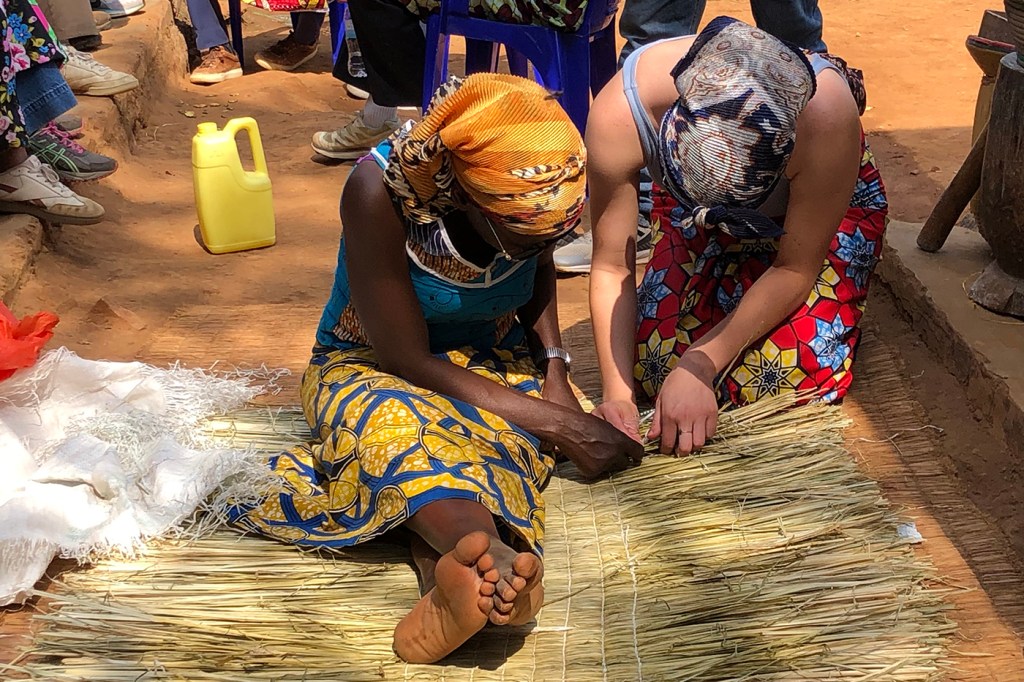Want to build experiential learning into elementary schools? Ask the experts in Northeastern’s Network of Experiential Learning Teachers.
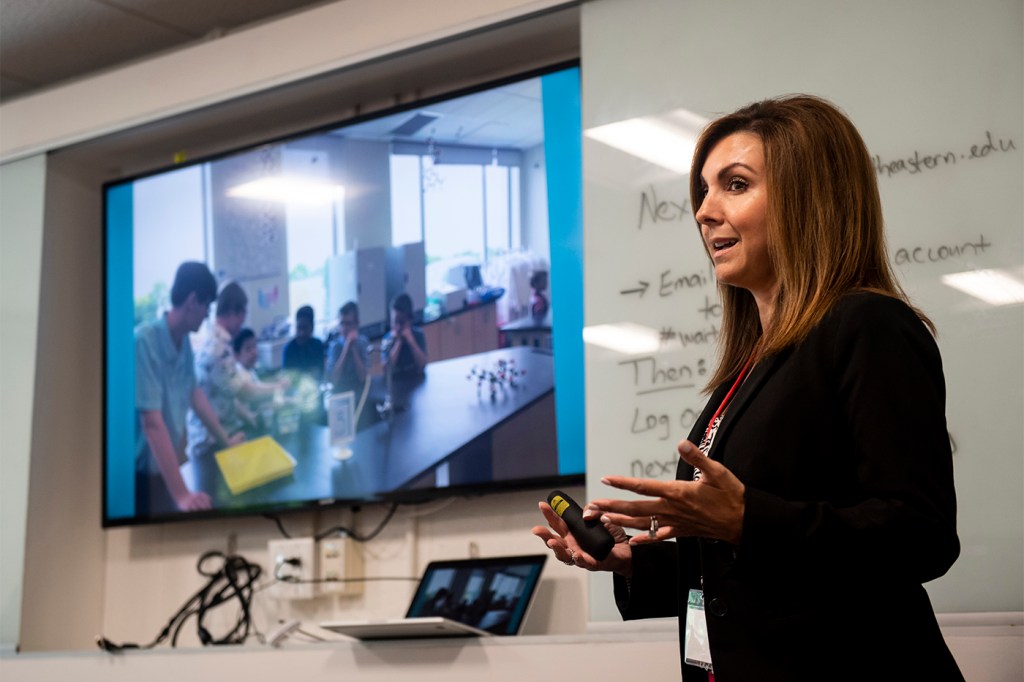
Fourth grade students at the Charlotte Lab School in Charlotte, North Carolina, recently hosted a pop-up market at their school to demonstrate the importance of a balanced diet. They worked with a local public market to learn about how food gets from the farm to their plates, and made a variety of healthy foods to share with their schoolmates—along the way, they learned about nutrition, the food system, and healthy eating.
“What we do with our students is real work that real people do in real situations,” said Mary Moss, who is the founder and executive director of the Charlotte Lab School.
Moss and her colleague Kaylee Whitelaw, a teacher at the school, explained their method to a group of elementary and middle school educators who came to Northeastern’s Boston campus this week to learn how they, too, could provide their students with opportunities for experiential learning.
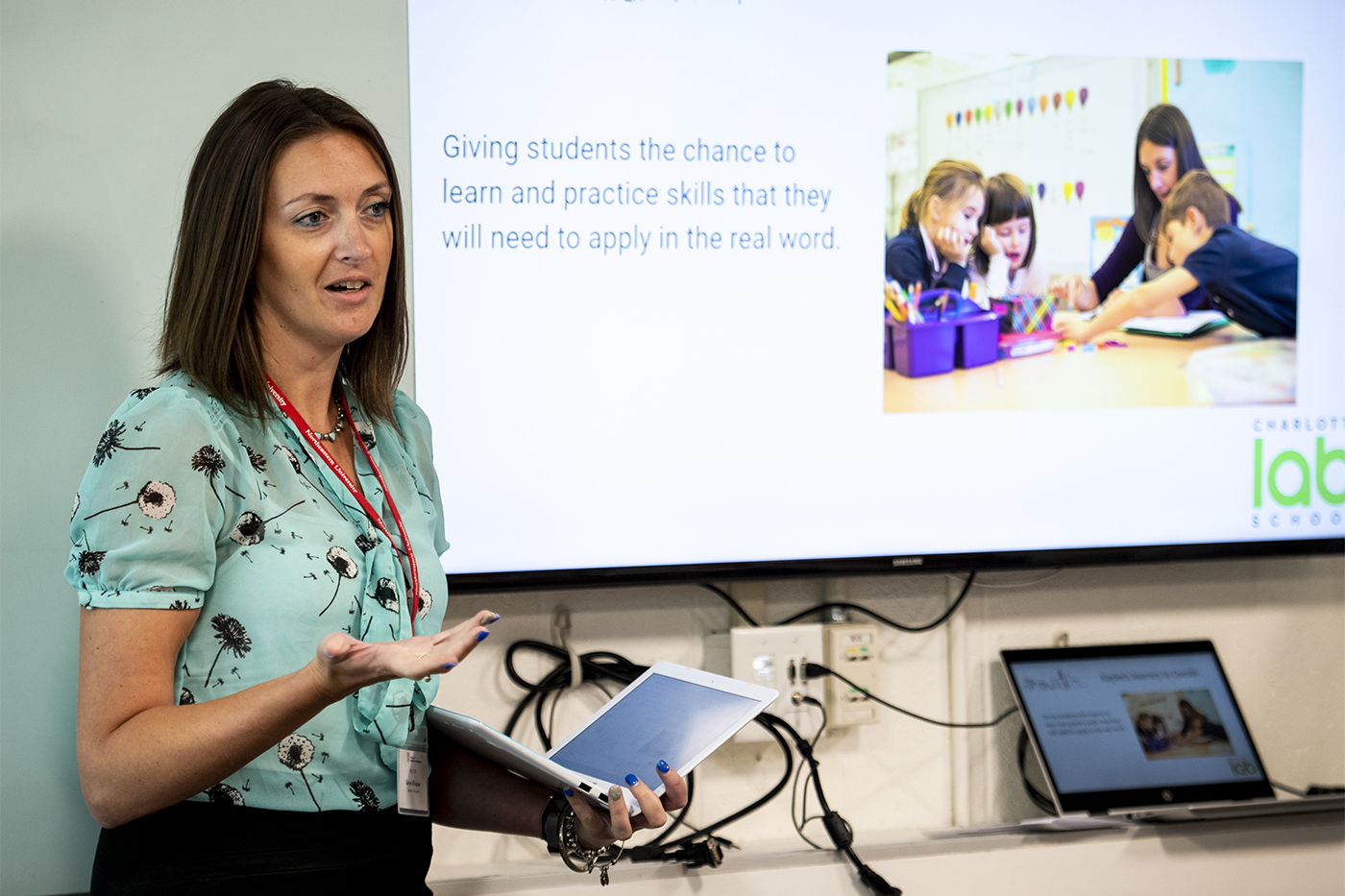
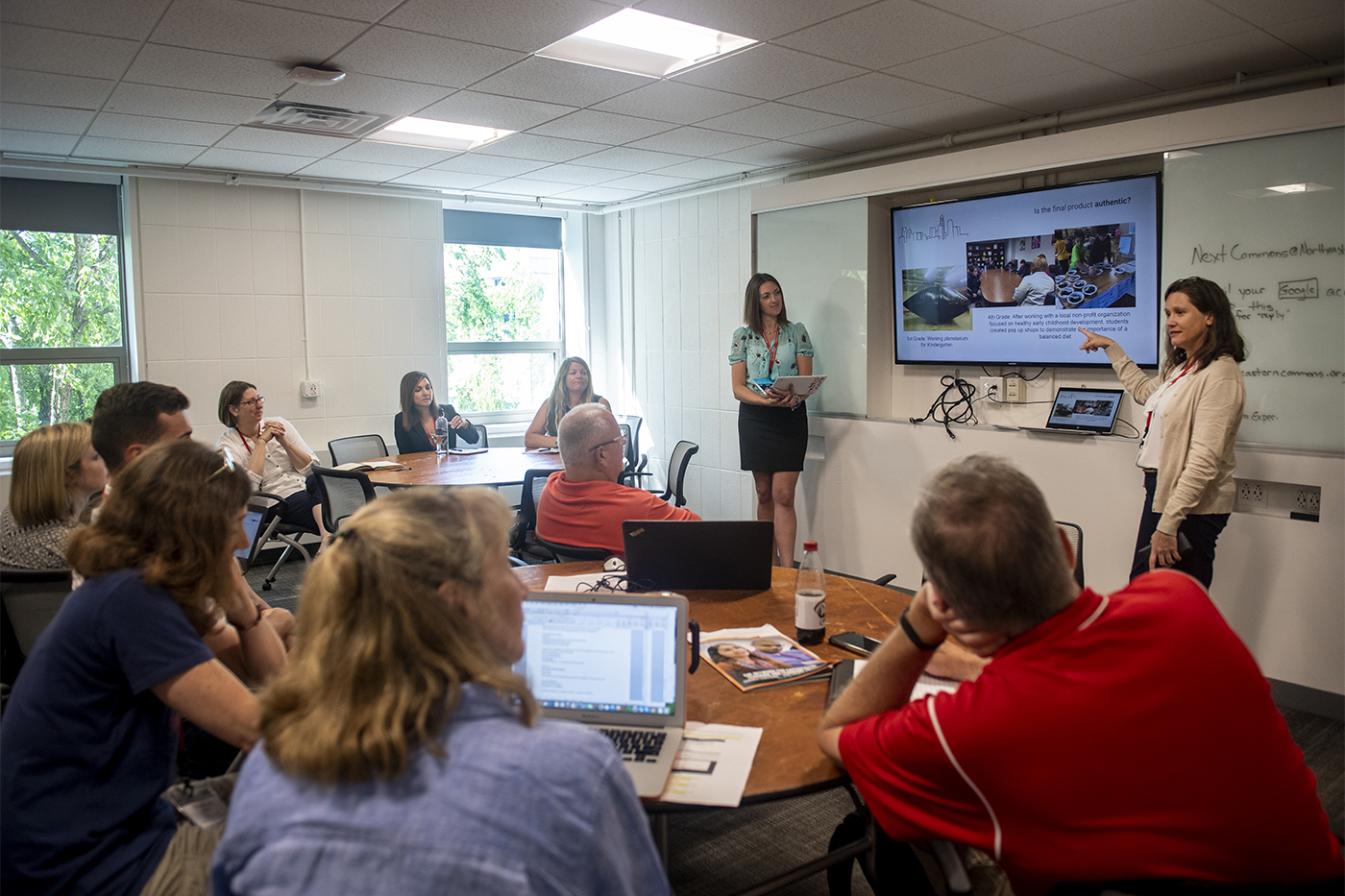
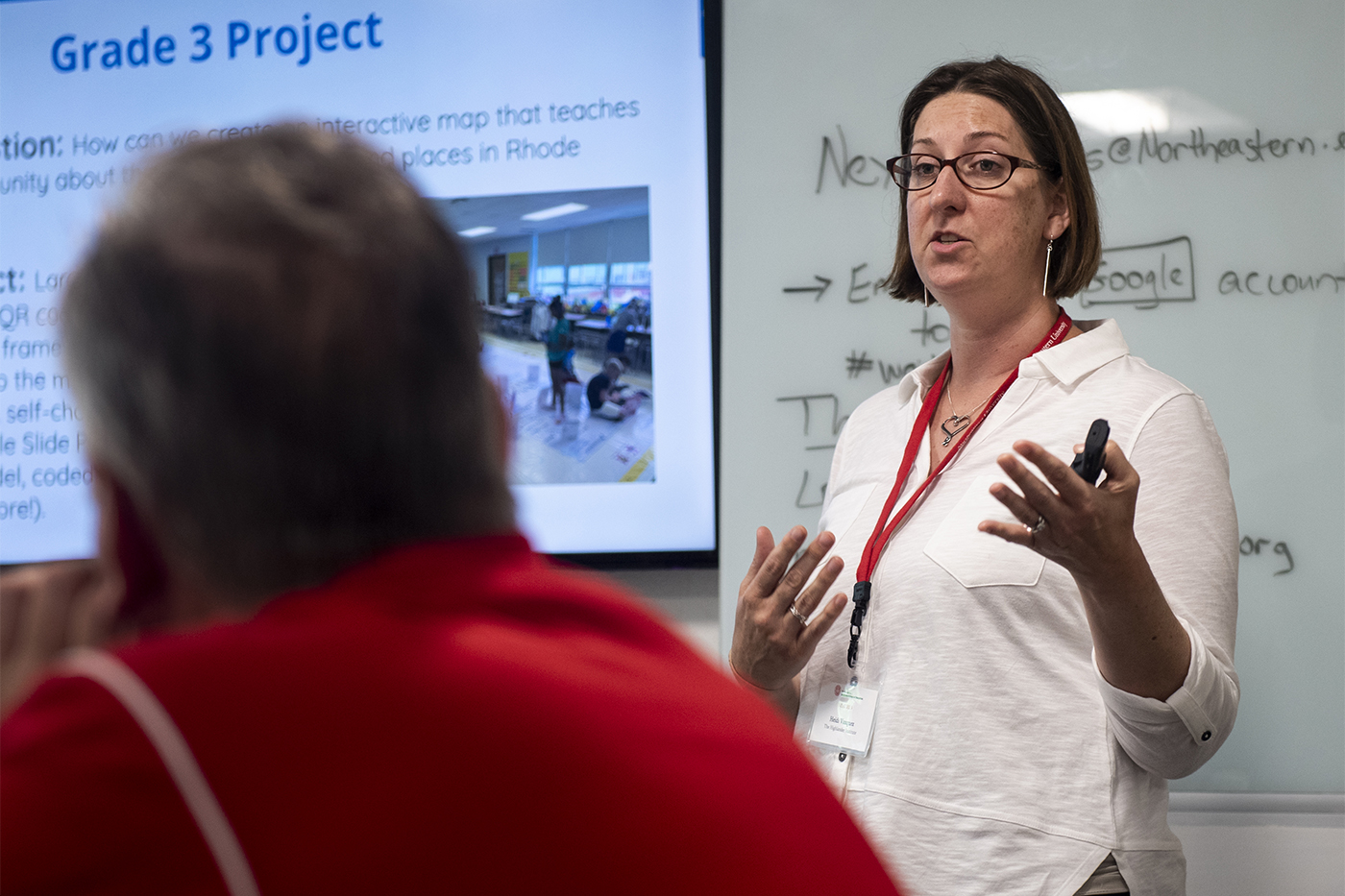
Nearly 100 such educators participated in a three-day conference for members of the Network for Experiential Teaching and Learning. As a leader in the field of experiential learning, Northeastern created the network in order to connect K-12 educators across the U.S. and Canada who are interested in experiential learning with each other as well as with the resources they need to develop experiential learning programs at their schools.
“We know how transformative an experiential education can be for students,” said Ellen Stoddard, a research assistant at Northeastern and part of the network, which uses the acronym NExT. “The goal is to build those pathways for students before they even get to college.”
Moss and Whitelaw were among several educators who shared tips and information with their counterparts at other schools. Nia Milman, a kindergarten teacher at the Nayatt School in Barrington, Rhode Island was another.
She and Heidi Vazquez, a consultant for an educational nonprofit organization that worked with the Nayatt School, advised teachers who had questions about how they might be able to fit hands-on projects for students into strict state and federal curriculum mandates, or secure grant funding for field trips and other projects.
Kristen Whitman was among the educators in the audience. Officials in her school district in Vermont, she said, are looking for ways to incorporate more experiential learning into their students’ days. The conference was a way to learn from people who were already trying something similar in their own schools, she said.
“I came to get ideas, to see what’s working and what I might be able to bring back to my district,” Whitman said.
For media inquiries, please contact media@northeastern.edu.

